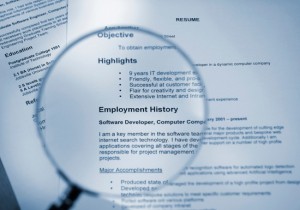Are you tired of waking up each day dreading going into work? Tired of staring into your lunch each day, wondering if there’s a better job for you?

If so, this article is for you. It’s also a general guide to help you navigate the career change process. Read the entire thing or the section that interests you the most.
This article has the following sections:
- Getting unstuck
- Vision Statement Story
- Networking
- Resume – What story is it telling the reader?
- Cover Letter
- LinkedIn
- Interview
- Negotiation
Getting Unstuck
Getting unstuck and clear where you want to take your career
Many times in our career, our lives can get the best of us, and fear can hold us back. We get locked in our heads and fear restrains us from even making a move. It can feel like, if you do this, then that thing will happen. But, if I make this move, then I can’t do that over there. It feels like you’re stuck with no way out.
I’ve felt like that too and navigated my way to doing work I love. Like looking at a map, you need to know where you’re at first before you can make a move.
The Step to getting unstuck.
Do you know where you want to go? If you don’t, that’s okay. That’s fine, and many people hit points in their life where they don’t. Yet, most people know where they DON’T want to go and that’s where you should start.
Write about why you want to leave your current job. Next, step back and review that. Sometimes we need to vent a little to work out our current frustrations. Is it the job duties you don’t like? Is it the people? Can you not do the work any longer? Does it not pay enough? Get clear on that.
Then, from that new knowledge, you’ll be able to point yourself in the direction you want to go. A job you will be happier in and the beginnings of the new path.
For example. You’ve determined it’s the people, but you enjoy what you do. Then you should focus on the same type of work but in a new setting. If the people are fine, but the work itself is the issue, then it’s time to see what other interests you have. If it’s money, then it’s time to ask for a raise or look at other companies. It’s also time to review your finances too. If it is the skill and you’re tired of doing it, then it’s possible you’re ready to teach or mentor people. That’s a natural progression for someone who has mastered a skill.
Like this Article? Share It! You now can easily enjoy/follow/share Today our Award-Winning Articles/Blogs with Now Over 2.5 Million Growing Participates Worldwide in our various Social Media formats below:
LinkedIn: https://www.linkedin.com/in/chris-g-laughter-b46389198/
Facebook: http://www.facebook.com/pages/First-Sun-Consulting-LLC-Outplacement-Services/213542315355343?sk=wall
Twitter: Follow us @ firstsunllc
Best Daily Choice: Follow the Best of FSC Career Articles/Blogs @
https://twitter.com/search?q=bestoffscblog&src=typeahead_click
Question: Want the ‘the best/current articles/blogs on the web’ on Job Search, Resume, Advancing/Changing your Career, or simply Managing People?
Answer: Simply go to our FSC Career Blog below & Type(#Jobsearch, #Resume, or #Networking) in Blog Search: https://www.firstsun.com/fsc-career-blog/
What Skill Sets Do You have to be ‘Sharpened’ ?
Article continued …
Vision Statement Story
Now that you have a direction, let’s create your goal/vision of the new job. Answer the following questions and they will be used to guide you in creating a vision statement. Answer these questions as if you had a magic wand and could make the perfect job for you. If you don’t know it’s okay to leave blank as this process will help uncover those hidden areas. If you’re stuck, skip that question and move to the next one.
Questions and examples from my career.
Who do you serve or help in your new role? (Example: people stuck in their careers)
What pain or problem do you solve for people? (Example: Can’t find work they want to do)
How is their life better because of your contribution at work? (Example: People wake up happier getting to do what they want.)
How do you feel about this new role? (Example: I feel like I am contributing to people’s lives and feel great about that.)
What industry is your new job in? (Example: Career and Employment Industry)
What kind of company is it? (Example: Small Team environment with a passion for helping others succeed. A service-first mentality )
What’s the culture like? (Example: Having fun while being of service to others. The team collaborates and has a culture of trust.)
Do you work with people all day or by yourself? (Example: Most of the time by myself, but with the help of other teammates)
Are you inside or outside? (Example: Inside)
Is it an active role or behind a desk? (Example: Behind the computer)
How much money are you making?
Now you have a better picture of your goal you can create the outcome you want to have in your life. Let’s create the vision statement story you’ll be working towards.
Now, let’s create your vision statement. You’re going to create it in a different way than most goals. You will create it as if it’s already happened. For example. You’re telling a friend what happened over dinner about a month after you landed the job. Describe it, but from the point of view as if you’ve already got the job. Doing it this way will help your brain work in the background on your goal.
Vision Statement Story Example
Robert, let me tell you about the new job and how I got it. I remember getting clear on the career I wanted and decided to be a career coach. I chose to be a career coach in the employment industry because I love helping others do what’s important to them. I realized I feel great doing this work. The team I work with is awesome, and it’s a small company. In fact, the company has a great fun culture and I get to work by myself, but love the support of the team. I am getting paid more than I was at my last job and the benefits are great too. I’ve been there for a little over a month now and each day feels great. I love who I get to be.
This is your vision and goal! Tell this story to yourself every day in your job search.
Networking
You’ve got your vision and the next step is networking to help you land that job. Do you already have a network?
Even if you do, let’s create a network strategy. Answer these questions.
Where would the hiring managers hang out?
Where would the company hang out?
What events would they go to?
What meetup.com events could they be?
Is the job industry your interested in having a career fair in your area?
Where would they hang out online? LinkedIn Groups, Quora.com conversations, forums, etc.…
Once you’ve discovered a few places where they hang out go to those events and meet people. Before you go write an intention of why you’re going and be clear about it as you walk into the event. Be curious about them and show you’ve researched them. Be helpful and knowledgeable.
Then, ask the contacts you made if you could have coffee sometime. Use that time to build a relationship with them. Get to know them and share your story with them. Share why you’re creating a new job.
Reach out to your network and share your vision with friends, family, and past work colleagues.
Use contacting the hiring manager technique. Here’s an article on themuse.com with a more detailed strategy to do this. This technique is a proven way to go around HR and get the attention of the hiring manager.
Note: HR doesn’t say yes to hiring someone the hiring manager does. Spend your time building the connection there rather than HR. HR is the gatekeeper to the person who can get you the job.
Resume – What story is it telling the reader?
Your resume is your marketing piece that helps get your foot in the door. What story is the reader going to craft about you when they read it. Remember, they don’t know you and you only have 1-2 pages to show who you are. You only have a short period of time to grab the reader’s attention. That’s only if it makes it past the Applicant Tracking Systems (ATS).
Your resume should be in the following order for most job types.
Name and Contact info
Career Summary
Career Highlights
Professional Experience
Education
Extracurricular activities
Name and Contact info
Self-explanatory
Career Summary
This area summarizes your career and the area to showcase your career at a high level. How many years of experience and in what areas. The next area should be high-level accomplishments in your career. Also, any specific skills that are relevant to the job.
Career Highlights
In this section of the resume, you’ll want to list out three of your best career achievements. When you list them, focus on the difference you’ve made for the company or people. Put them in the relevance of importance for a company. Revenue, growth, customer satisfaction, etc. It’s okay to share the awards as long as that isn’t the focus. This will showcase you as someone who is a humble winner. What story is it telling the reader?
Professional Experience
This section highlights your career experience and should be in reverse chronological order. Your latest job should be the first job they see. The name of the company should be written first. Why? Because recruiters and HR personnel scan to see what companies you worked for. The impressive companies will stand out before a title. After that, put a small summary of what you accomplished, then your title. Next will be your bullet points. They should focus on your accomplishments. They should be accomplishments you’ve made and quantify them if you can. Again, revenue, market growth, customer satisfaction, retention, sales, cost reduction, etc.
Education
In this area list, you’ll want to list schools, degrees, certifications, and school projects.
Extracurricular activities
A shortlist of volunteers, foundations, charity work, non-profits, clubs, publications, media appearances. Only list these if they apply for the position, company, or its mission.
KILLER BONUS RESUME TIP
ATS tracking systems are the gatekeeper nowadays to you reaching the HR personnel. If your resume doesn’t pass that system, your resume will never be viewed. Period! You should do three things when you complete writing.
First, you want the resume to be a good match for the job description. Imagine you’re the hiring manager and you wrote the job description. Then you picked up your resume… Would your resume match what they want? Do the keywords match? Would you want to pick up the phone and call this person to say you wanted to talk more? It doesn’t have to be a perfect fit by any means but good enough for them to say this candidate has what we need.
Second, get a friend to read it and ask them what they notice first. Then ask them if you were the hiring manager would you want to reach out to me? Find a friend who’s brutally honest.
Third, use a website called www.Jobscan.co. It’s designed to compare your resume to the job description and how the ATS system will score it.
When done with those steps update your resume as needed and repeat until it’s a good fit.
NOTE: If you’re making a big career change you should focus the majority of your time on networking.
Cover Letter
The cover letter is your first impression on the employer. Its job is to grab the attention of the reader and get them to reach out to you. It’s NOT a full work history or a place to beg for a job. It has just a few key components to it.
The reason you’re reaching out
Share who you are and why you’re interested (share a quick and powerful story of your why) Show excitement for the job.
Here are two articles with advice on writing a cover letter that will grab their attention.
https://www.themuse.com/advice/31-attentiongrabbing-cover-letter-examples
https://www.themuse.com/advice/5-secrets-to-making-your-cover-letter-stand-out
LinkedIn Profile
Your LinkedIn profile is another marketing piece for you. You should treat it like that. It can be warm, friendly, and welcoming. Choose a picture that is professional and friendly. Even if you don’t like your smile, use a picture with a nice smile. It’s not your opinion that is being formed with the picture you choose. Research shows that people who see a smile are much more likely to form a positive opinion of that person.
Show your accomplishments and they should have numbers to back them up. Numbers grab attention and the longer a reader stays on your profile, the more likely they are to reach out.
Use the summary section much like your professional summary of your career. Avoid overuse of buzzwords in your industry. Is it telling a story?
Avoid any political or controversial posts except if you work in that industry.
Make recommendations for your friends and colleagues first. Don’t be afraid to ask for them too.
Again, like your resume, ask a friend or colleague to review it. What did they notice first? What feelings did they have after reading it? Did they feel compelled to know more?
Interview
The interview is the stage where all the work you’ve done up to here is all about. The best resume, cover letter, and LinkedIn Profile won’t get you hired if you don’t show up ready to be your best. I specialize in helping others feel confident in interviews. Here are a few great tips to help you show up confident.
Dress
Dress for the job you want and do your research about the company. If they were suits, so should you. If it’s a casual environment, it’s best to still dress up, but you may not need to wear a suit. Default to your research in either case.
Mindset
This job isn’t the only job that’s out there and you should treat it like this. The world keeps moving and new jobs, post every day. If you walk into the interview being attached to having that job, you’re already at a loss. Walk-in with the attitude of this will be practice and I will do a great job, regardless.
Show up prepared and ready to share who you are but unattached to having that job. You want to interview the company too. It’s a two-way relationship. It’s your job to find out if they are a good fit for you. It’s their job to find out if you are a fit for them. There’s a reason for the job being open. They need a human being to fill it. I know that seems obvious, but it’s easy to forget. They could use you as much as you could use them.
Prep
Be prepared and do your research on the company, its history, its goals, and the position. Have questions ready for them about what’s important to you. Know why you want to work there and why that’s important to you besides a paycheck. Know the role and help tell a story of how you’ll be a great fit for it.
Research about the team you are going to work with. Dig on LinkedIn about the hiring manager and find out if you have anything in common.
Use Glassdoor.com to check out the company before you go. They list common questions during interviews, salaries, and reviews of the company.
Be prepared for the STAR method in an interview. If they use the STAR method you’ll be asked questions in the following way.
Tell me about a time when?
What would you do when?
Have you ever?
Describe a time when you?
STAR definition
S – Situation – What was the situation?
T – Task – How did you take responsibility for this?
A – Action – What actions did you take to solve the problem or situation?
R – Result – What was the result or outcome you achieved?
Have a few go-to stories ready to share that share how you’ve accomplished something in your career. I like to frame them like this. Where did you start and what did you achieve along the way. How did things change as a result? When sharing your story add in little anecdotes about things that happened along the way. Add in some funny moments. The stories should feel compelling to the listener.
Want to blow their socks off?
Prepare a 30/60/90 day high-level plan for the job you’d like to have. Keep it high-level and detailed enough to show that you took the time to be prepared. This will show you will do what it takes to get the job done.
When finished with the interview and assuming you still want the job, it’s ok to ask where the company is in the hiring process. This will give a better expectation of what to expect after this.
Follow – up
When you’re done with the interview follow up with a thank-you note to the hiring manager.
I found this simple but powerful follow-up note from TheMuse.com and think it’s worth passing along. If you haven’t heard anything try it.
Quick, Powerful Follow-up note
Again, don’t be needy, but show your enthusiasm for wanting the job.
Negotiation
When they offer you the job, you already know what that position is paying in your area. Check out Glassdoor.com and Payscale.com and do your research.
Here are a few tips.
Never talk about salary upfront in the process or interview.
This is a two-way street. If they like you, they will pay more and if you like them, you’re willing to take less. So, it’s important to understand what value you add to the company. Remember, they are hiring someone for a reason. They need a person to do the job, and if you can show you will bring in tremendous value, they will offer you more.
Know the whole picture of the offer. How much vacation, training opportunities, travel, benefits, the team you’ll work with, start date, and the future opportunities there. Take all that into account when negotiating. Does it all align with your original vision?
Remain flexible. That doesn’t mean giving up your values. This is a relationship you’re building.
A note of reference is that the HR person isn’t the person in charge of the salary. That’s determined by the department where you will be in. HR will know the salary range to negotiate on. If you’re especially awesome and they want you, they will need to get approval to go higher you at a higher salary.
Give yourself time to respond and let them know when you’ll respond too. When you’ve come to an agreement, thank them, sign the offer, and celebrate that you just landed a great new job!
FSC Blog Author: Brad Finkeldei – Career Coach
Brad is a career catalyst and interview coach, speaker, and best-selling author. He coaches professionals to create a career they love. His specialty is identifying where people are stuck and helping discover the confidence to do what they love. He’s successfully navigated interviews, promotions, asking for raises, and can you help craft a plan to do the same. He has a knack for inspiring people to believe in themselves and create plans for success. He’s been featured on media outlets such as ABC, WGN-Radio, and many numerous podcasts. His diverse background in IT, speaking, and coaching will help you create a career plan and lifestyle that works for you while using your skillset to make the best career move. If you’re feeling less than confident about your career move or interview Brad will help make the process easier for you.
FSC Career Blog | May 13, 2020










